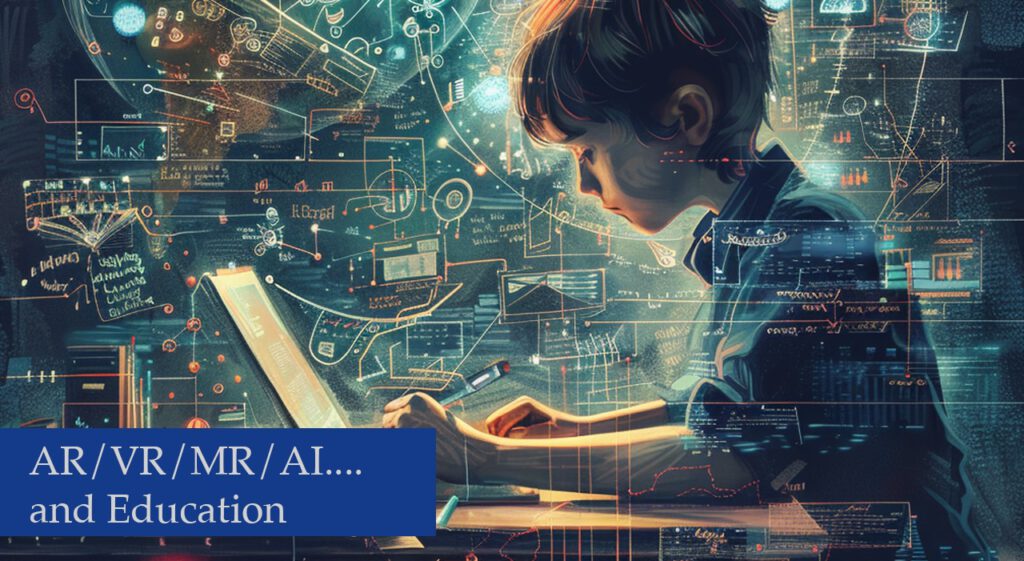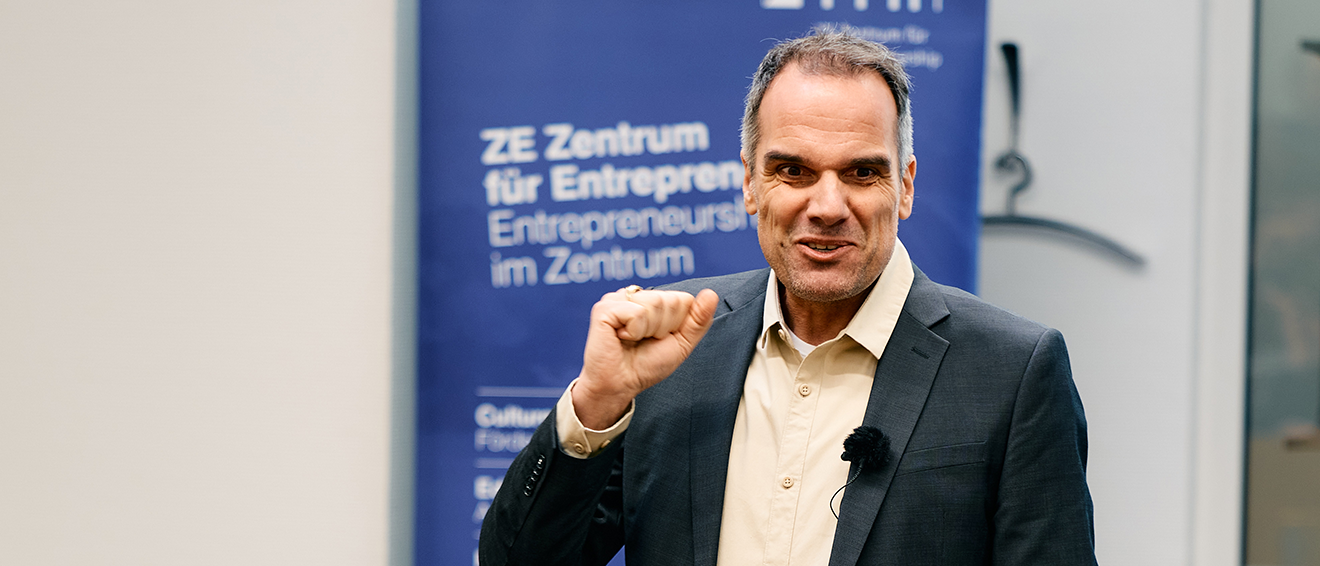In former times, new technologies were mostly marked by using 3-letter abbreviations. For example, we had XML, JEE, SOA, JPA, JNI, EAI, and many more. I used to be kidding in my lectures at that time, that any thinkable tree-letter abbreviation actually has a meaning in the world of computer science. Nowadays, this seems to have changed and replaced by two-letter abbreviations. AR/VR/MR/AI are well established combinations. However, their meaning or explanation leave many people helplessly behind. Currently our whole world changes by enormous technological innovations and inventions in the areas of artificial intelligence, virtual / augmented reality, or spatial computing. How can we cope with this?
Education – once more – will be a key component for mankind and every individual. If you think, that sounds a bit pathetic, you’re right. But we shouldn’t aim for less.
Understanding these new technologies and their applications will be vitally important for everyone. Starting at kindergartens, where new AI assistants will soon be reading books, at school, where virtual reality elements will visualize history and geography courses, at universities, where the brightest minds need a good foundation in these technologies to build future innovations on them. Also in our daily work, where generative AR/AI assists us or AR engineering and simulation helps us to improve processes, in our leisure time where we meet with virtual and real friends in virtual and augmented worlds. But also our parents and grandparents, confronted with new technologies, somehow fiddle with these gadgets to keep up to date and get things done. Each of these groups need education, no one can be left behind!
In general, there are three major goals to be achieved:
Higher education excellence
This might be the first thing, that comes in one’s mind, when thinking about education. Of course, we need higher education at graduate schools, public and private universities. Standardized, worldwide accepted bachelor and master’s degrees in AI, Virtual Tools, Machine Learning, or Management of AI/VR are important. Only with this solid foundation, a new generation of computer scientists, managers, innovators, application designers, can be formed. On the one hand, we need to ensure, that there is a broad understanding of technologies for everyone. In future, any master’s degree curriculum will contain an AI and VR/AR lecture, because these technologies affect not only computer science, they are relevant for any discipline. Obviously, for engineering or medical degrees, but also mandatory for psychology, pedagogics, history, literature, even in arts or sports. On the other hand, particularly in computer science, we need to have deep dive degrees educating the absolute experts on the field with excellent knowledge of the tiniest building blocks and the fundamentals of all required techniques and algorithms of AR/VR/MR/AI/etc. to shape the future of computer science. Summarizing this, we need bachelor’s and master’s degrees incorporating AI, VR/AR, and all the other new technologies in every discipline.
Integration in existing teaching and learning models
We are already living in a world, where information, knowledge, knowledge-transfer, and communication is a big and important part. We have plenty of existing ways to gain or transfer knowledge. AR/VR/MR/AI/etc. needs to be incorporated into existing solutions, they need to be enhanced, modernized, enriched. AR provides numerous ways of bringing “real” teachers into virtual or private classrooms. Even today, transcripts or realtime translations give good opportunities to learn any lecture in your native language. More and more, we have to decide, for which topics we should place real teachers, and where AI-teachers or automated training material can be used. When AR-avatars or video-teachers can be placed in your room, teach in your native language, when you can share your knowledge with anyone in the world without barriers, this is an enormous potential for knowledge management tools in the future. Any company, education facility, or any content provider can contribute and use these tools to share knowledge.
Public awareness
A broad and public understanding of the constraints in using AR/VR/MR/AI/etc. and all those other technologies, is very important. This is not about “how” it works, it is more about what you can do with it and what should be avoided. Everyone – from child to grandparent – needs to be aware of the capabilities and risks of these new technologies, the “do’s and don’ts”. We need to know, where and how we can use Chat GPT or Midjourney, we need to understand, that Generative AI is generated (and not real), we need to be sensitized about data, privacy, protection, fake news, deep fakes, bias, and how we can find a safe way through this jungle of new technologies, hypes, and tools. This awareness does not come by its own. Politics, media, technology companies and education providers will have to inform, explain, demonstrate, and guide people. Objections and fears have to be mitigated, (over-)expectations have to be managed, regulations and guidance has to be established. This is an enormous task, as literally everyone on this planet has to be addressed in an appropriate way. All over the world, in any age, with any private or educational background. These technologies will change our lives, and we need to be prepared for it. And of course, such a public awareness will also existing education materials in schools, media, and the internet.
None of these areas is more important than the other. Only, if all three are addressed, we can ensure that these new technologies will be in good and safe hands. We all have to be aware that AR/VR/MR/AI/etc. will have an enormous effect on mankind as such and on each individual in particular. We all will have to cope with the psychological effects, changes in our social behavior and environment, our work, and the enormous speed of technological advances. If we are aware of that, well educated, and if there are experts guiding us through all this, these technologies can be incredibly beneficial for each and all of us.
Education is an important key for that! So let’s get started.





